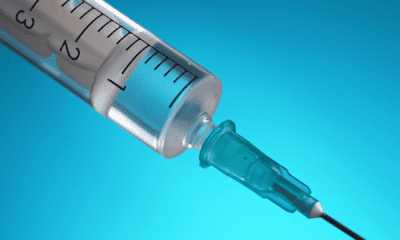Post-operative pain management after surgery is a topic that has been well studied and documented through the years. It’s known that many patients are often hesitant to undergo surgery, because of the fear of pain that may be involved. Internationally renowned plastic surgeons gathered for a roundtable discussion, dealing with pain after plastic surgery. Roundtable moderator, William P. Adams Jr. MD a board certified plastic surgeon from Dallas, Texas asked surgeons to give their thoughts on managing pain after surgery and a specific modalities that surgeons can use to minimize pain.
By: Carolynn Grimes
The Plastic Surgery Channel
Surgeons See Benefits for their Patients with a New Post-Surgery Pain Medication
A new pain medication called Exparel, made by Pacira Pharmaceuticals Inc. was recently approved by the Food and Drug Administration. According to surgeons it can provide sustained pain relief for post-surgery patients far longer than any other drug currently available.
It’s important for the patient to wake up pain free says Richard Baxter MD, a board certified plastic surgeon from Seattle. “Exparel is a local analgesic that utilizes bupivacaine, which is a well understood numbing agent. It is bound in liposomes that release the pain medication for up to 72 hours,” says Baxter.
Steve Finical MD, a board certified plastic surgeon from Charlotte, North Carolina says, “Anything new on the market that can help reduce pain after surgery is a plus for surgeons.” Finical says in the last month his office has performed nine abdominoplasties using Exparel. “My very first patient came back after her surgery and said that her breast augmentation I had done seven years ago was more uncomfortable than her abdominoplasty; that’s something that I’ve never heard before.”
Dr. Baxter says the drug has dramatically cut down on the need for narcotic medication after his abdominoplasty surgeries by fifty percent or more. He says those patients feel better and are getting up and walking around faster.
Managing Pain After Surgery
Lee Thornton MD, a board certified plastic surgeon from Meridian, Mississippi says a multimodal approach is the best way to manage pain after surgery. Thornton says post-operatively surgeons typically use oral pain medication, many times those narcotics are combined with regional pain blocks, pain administrating agents such as Marcaine that are injected into the wound or with the use of pain pumps.
Baxter says surgical technique can also play a role in a patient’s level of pain after surgery. “As plastic surgeons we try to handle the tissue gently, so there’s less trauma to begin with.”
Where Does Exparel Fit into Plastic Surgery Procedures?
All agree that abdominoplasty surgery is a definite application for Exparel. Other potential uses are with revision breast surgery and breast reconstruction. Baxter says, “particularly when you’re using an acellular matrix because the sutures in the chest wall can be tender for quite a while.”
Finical says following surgery, “It’s really important to get the patient up and moving around.” Additionally he says it’s great to decrease their narcotic use and get them up and ambulatory to help avoid blood clots. With Exparel, “People are bounding back in the next day to see me, they’re walking normally and they’re very comfortable,” says Finical.
Roundtable moderator, Dr. Adams, adds that patients typically would stay in the hospital for days dealing with pain. Adams says, “Now that insurance companies won’t cover people for very long, Exparel may have a huge application in helping people deal with pain when they’re sent home early.”
Thornton says he sees Exparel being used in breast cancer reconstructions and TRAM reconstructions of the breast where typically patients can be in the hospital recovering for a prolonged period of time. “Once the patient is stable after a big procedure, pain is what’s keeping them there. If we’re trying to get patients out of the hospital to help prevent infection and cut costs, this is a great use for this drug.”














Facebook
Twitter
Instagram
YouTube
RSS